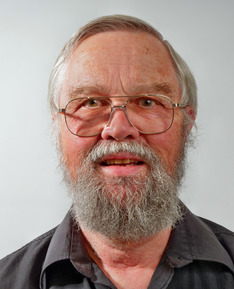
| SCO's evidence of copying betweeen Linux and UnixWare |
|
|||||||

|
|
|
||||||||||||
In early June 2003, SCO showed code samples to non-programmers who confirmed that there were large passages, in one case 80 lines, of identical code, including comments. SCO did not show the revision logs for the code, nor did they reveal where in the kernel it was supposed to be. Both of these facts strengthen the viewpoint that SCO has something to hide.
There's probably no single stretch of 80 lines of code anywhere in the UNIX or Linux kernels which has been developed at one time. There will be modifications. A cvs annotate on FreeBSD kernel code shows stretches of up to 30 lines here and there which have been committed at the same time in newer code. Older code, including code imported from 4.4BSD, seldom shows more than 10 consecutive lines. This is all code that has been functional through all those revisions. Therefore, looking at the revision history,
If all 80 lines show up at once, that suggests it wasn't written there.
If the 80 lines show a typical pattern of having been updated over a period of time, it should be possible to at least compile each intervening revision.
It's unfortunate that Linux wasn't kept under revision control until a year or two ago. But in this case there are so many versions out there, burnt on CD-ROM, that the history of the code in Linux should not be difficult to prove more reliably than SCO can prove their case.
Since I first wrote this text, SCO has shown snippets of code to programmers, ostensibly under a draconian non-disclosure agreement. Unfortunately, one lawyer in Germany forgot to get the signature on the NDA, so the most interesting information comes from Stefan Hildemann. There's also an English translation of this page, but I haven't checked it for accuracy except for the bits below, which I have quoted (with minor corrections) from that page.
Under the supervision of a notary public, 46 pages were shown, each containing, on one half, code from Linux (for the most part, print-outs of posts taken directly from the Linux-Kernel-Mailing List) and on the other half, listings of SCO. There's no way of knowing whether these are indeed sources of System V, since they are taken out of context. Another interesting thing is that all date and time details have been removed from both, even from the comments.
It's funny that they quote code from the Linux kernel mailing list rather than the kernel code. That's really no evidence at all. Also the lack of dates looks very suspicious.
The crunch, however, is a function of the scheduler, which is, over a length of about 60 lines, indeed identical except for slight differences. In this section, there is also a whole lot of corresponding comments.
This is very interesting. In February 2002 I listened to a talk by Rusty Russell about kernel hacking. The example he used was the Linux scheduler, and if I had been asked for an example of the biggest differences between UNIX and Linux, I might well have chosen that. It looks strange, though Rusty has given some good reasons for why it should look like that. If that code is in UnixWare, I would expect it to come from Linux.
Ian's report is less conclusive from a technical point of view, since he had to sign an NDA. He was also given less code to look at, but he also noted significant similarities in the code he looked at, which he was not allowed to identify, though he did say that it was not central to the system. That definitely leaves out the scheduler, which is arguably the most central part of the entire system. The other possibility that Stefan mentions are the memory allocation routines. They're pretty central too. The only thing about both of these code segments is that, precisely because they're so central, they don't impact on much other code and can thus be easily changed.
The real question is: is the evidence valid? There are a number of possibilities:
Yes, some unscrupulous programmer did take UnixWare code and put it into Linux. It's possible, but given the central nature of the scheduler, I consider it extremely unlikely. The mail exchange on the LKML also suggests that the information they have was taken from the mailing list rather from the kernel. Ian confirms that the code is in the kernel as well, possibly in slightly modified form, but I can hardly believe that the code was found in the kernel. Otherwise they would have just quoted it rather than looking for the corresponding messages in the LKML; it's possible that they might not even have found them.
Yes, some unscrupulous programmer did take Linux code and put it into UnixWare. This seems much more probable: the best place to get them would be from the LKML, where they would have not just an easily digestible piece of code, but also a discussion about why they should be using. Both are missing in the Linux kernel sources.
The entire code came to both systems from a third source, such as BSD. I don't really see anything which points in this direction. I've already mentioned that the BSD and Linux schedulers look very different.
SCO has planted evidence. There's no evidence for this either, but their behaviour looks very suspicious. They have specifically refused to show revision history.
I'm not a clairvoyant. I'll sit back and watch the fun.
| Greg's home page | Greg's diary | Greg's photos | Copyright |